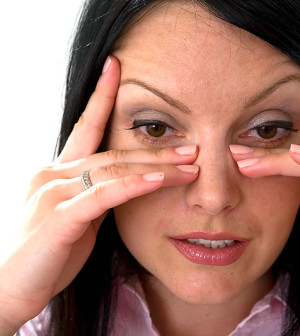- Could Your Grocery Store Meat Be Causing Recurring UTIs?
- Are You Making This Expensive Thermostat Error This Winter?
- Recognizing the Signs of Hypothyroidism
- 10 Strategies to Overcome Insomnia
- Could Artificial Sweeteners Be Aging the Brain Faster?
- Techniques for Soothing Your Nervous System
- Does the Water in Your House Smell Funny? Here’s Why
- Can a Daily Dose of Apple Cider Vinegar Actually Aid Weight Loss?
- 6 Health Beverages That Can Actually Spike Your Blood Sugar
- Treatment Options for Social Anxiety Disorder
Spring Allergies? Don’t Assume It’s Only Pollen

Spring allergy season is here, so if you know your triggers you can start reducing your symptoms, experts say.
You may believe pollen is the culprit. But, other substances such as mold may be involved in your allergies as well, according to the American College of Allergy, Asthma & Immunology. The college says more than two-thirds of people with spring allergies actually have symptoms all year long.
Here are some of the experts’ tips for keeping your sniffles and sneezes at bay during allergy season:
- Monitor pollen and mold counts. This information is often included in weather reports.
- Keep windows and doors shut at home and in your car during allergy season, and try to stay inside at midday and during the afternoon, when pollen counts are highest.
- When mowing the lawn or doing other outdoor chores, wear a N95 filter mask rated by the U.S. National Institute for Occupational Safety and Health, and take appropriate medication beforehand.
- After spending time outdoors, take a shower, wash your hair and change your clothes.
A number of over-the-counter and prescription medications can help control allergy symptoms, the allergists said in a college news release. Another option: allergy shots, which can help your body develop tolerance to allergens instead of reacting with symptoms such as sneezing, stuffy nose and itchy, watery eyes.
More information
The U.S. National Institutes of Health has more on controlling seasonal allergies.
Source: HealthDay
Copyright © 2026 HealthDay. All rights reserved.










